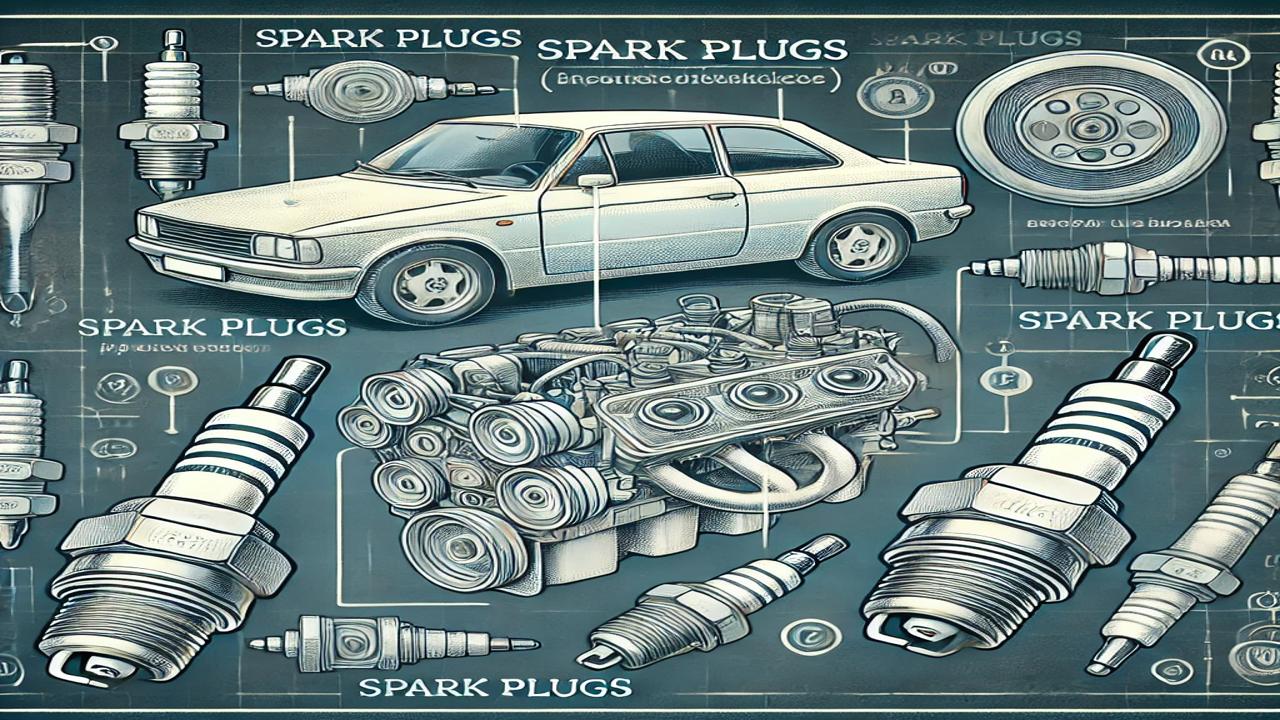What is a Spark Plug? What Does It Do?

For motor vehicles to function properly, the fuel needs to be ignited correctly. The essential component responsible for this ignition is the spark plug. Spark plugs play a crucial role in cars, motorcycles, generators, and many other internal combustion engine vehicles. But what exactly is a spark plug and what does it do? Here’s a breakdown of these questions:
What is a Spark Plug?
A spark plug is a key part of an internal combustion engine's ignition system. Typically made of metal and ceramic materials, it generates an electric spark to ignite the fuel-air mixture in the engine’s cylinders. This spark causes an explosion in the cylinder, leading to the engine's power production. The tip of the spark plug is placed in the engine's cylinders, where it generates high-voltage sparks.
How Does a Spark Plug Work?
The ignition system of the engine sends electricity to the spark plug to start the ignition process. This electricity reaches the plug's electrode and creates a spark. The spark ignites the fuel-air mixture in the cylinder, causing an explosion, which leads to the movement of the piston and the operation of the engine. This process repeats in each cylinder to keep the engine running smoothly.
What Are the Functions of a Spark Plug?
-
Ignition of the Fuel: The primary role of the spark plug is to ignite the fuel-air mixture in the engine’s cylinders. This ignition is necessary for the engine to produce power.
-
Ensuring Efficient Engine Operation: Spark plugs help the engine run efficiently. Proper ignition at the right time ensures smooth combustion, which helps the engine perform well. A malfunctioning spark plug can decrease engine performance and fuel efficiency.
-
Reducing Emissions: A spark plug ensures complete combustion of the fuel. This leads to cleaner exhaust emissions and helps minimize harmful pollutants.
-
Power Generation for the Engine: Consistent and timely ignition helps the engine produce power efficiently. If the spark plug malfunctions, the engine won't generate power optimally, and its performance will suffer.
What Happens When a Spark Plug Fails?
If a spark plug malfunctions, it can lead to a variety of problems:
-
Hard Starting Engine: A faulty spark plug may fail to ignite the fuel mixture correctly, making it harder to start the engine or causing it not to start at all.
-
Increased Fuel Consumption: If the spark plug is not working properly, combustion efficiency decreases, leading to higher fuel consumption.
-
Reduced Performance: Without proper ignition, the engine can't produce enough power. This leads to poor acceleration and power loss.
-
Excessive Exhaust Smoke: If the ignition is incomplete, the fuel doesn't burn fully, leading to excessive smoke in the exhaust.
How Long Does a Spark Plug Last?
The lifespan of a spark plug depends on the materials used, the type of vehicle, and the conditions in which the vehicle is driven. On average, a spark plug lasts between 20,000 and 40,000 kilometers. However, some modern spark plugs (like platinum or iridium-tipped plugs) can last up to 100,000 kilometers without issues.
Spark Plug Maintenance and Replacement
Spark plugs naturally wear out over time and require regular maintenance. The vehicle's user manual typically recommends replacing the spark plugs at certain intervals. Replacing the spark plug is an important maintenance task to ensure the engine operates efficiently. Additionally, it's a good idea to have the entire ignition system checked before replacing the spark plugs.
Conclusion
The spark plug is an essential part of any engine, ensuring the vehicle operates smoothly. Regular maintenance and timely replacement of spark plugs help keep the engine’s performance high, improve fuel efficiency, and reduce emissions. If you notice any ignition problems in your vehicle, replacing or maintaining the spark plugs will contribute to better performance and longer engine life.










